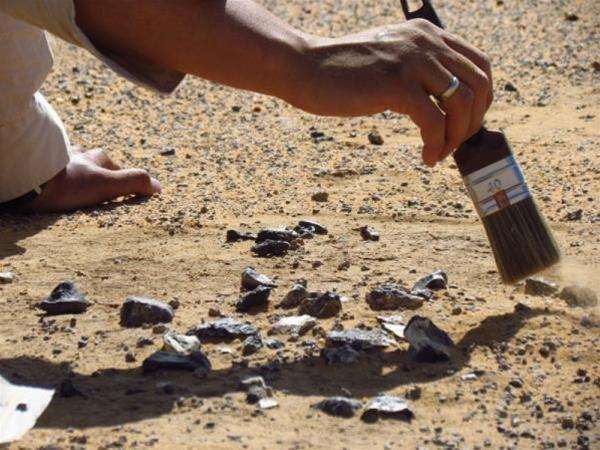Polish archaeologists in Sudan claim 'unique' human settlement discovery
PR dla Zagranicy
Nick Hodge
20.02.2013 14:32
Polish archaeologists working in Sudan have found remains of human settlements that appear to date back as far as 70,000 years.
 Foto: archeosudan.org
Foto: archeosudan.org

Photo: archeosudan.org
If confirmed, the discovery in the Affad Basin of northern Sudan will challenge existing theories that our distant ancestors only began building permanent residences on leaving Africa and settling in Europe and Asia.
“The Middle Palaeolithic discoveries in Affad are absolutely unique,” enthused Dr Marta Osypinska, one of the members of the team, in an interview with the Polish Press Agency (PAP).
“Last season, we came across a few traces of a light wooden construction. But it's only with ongoing research that we have been able to locate the settlement precisely and identify other utility areas: a large workshop for processing flint... and an area for cutting up the carcasses of dead animals.”
The team will be cooperating at the site in the Nile Valley with academics from Oxford University, in a bid to further unravel the geological history of the area.
More information on the project, which is funded by Poland's National Science Centre, can be found at web site archeosudan.org. (nh)